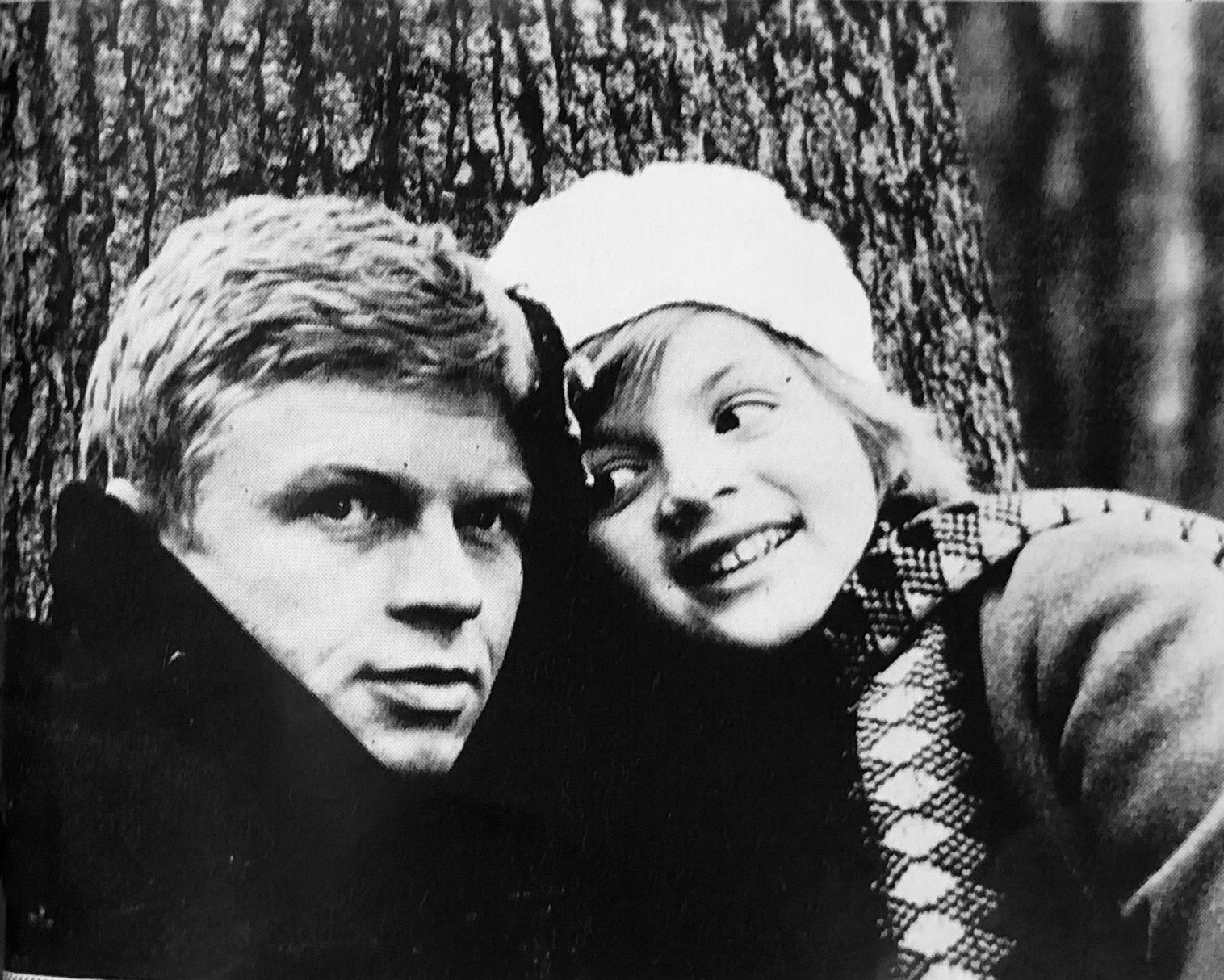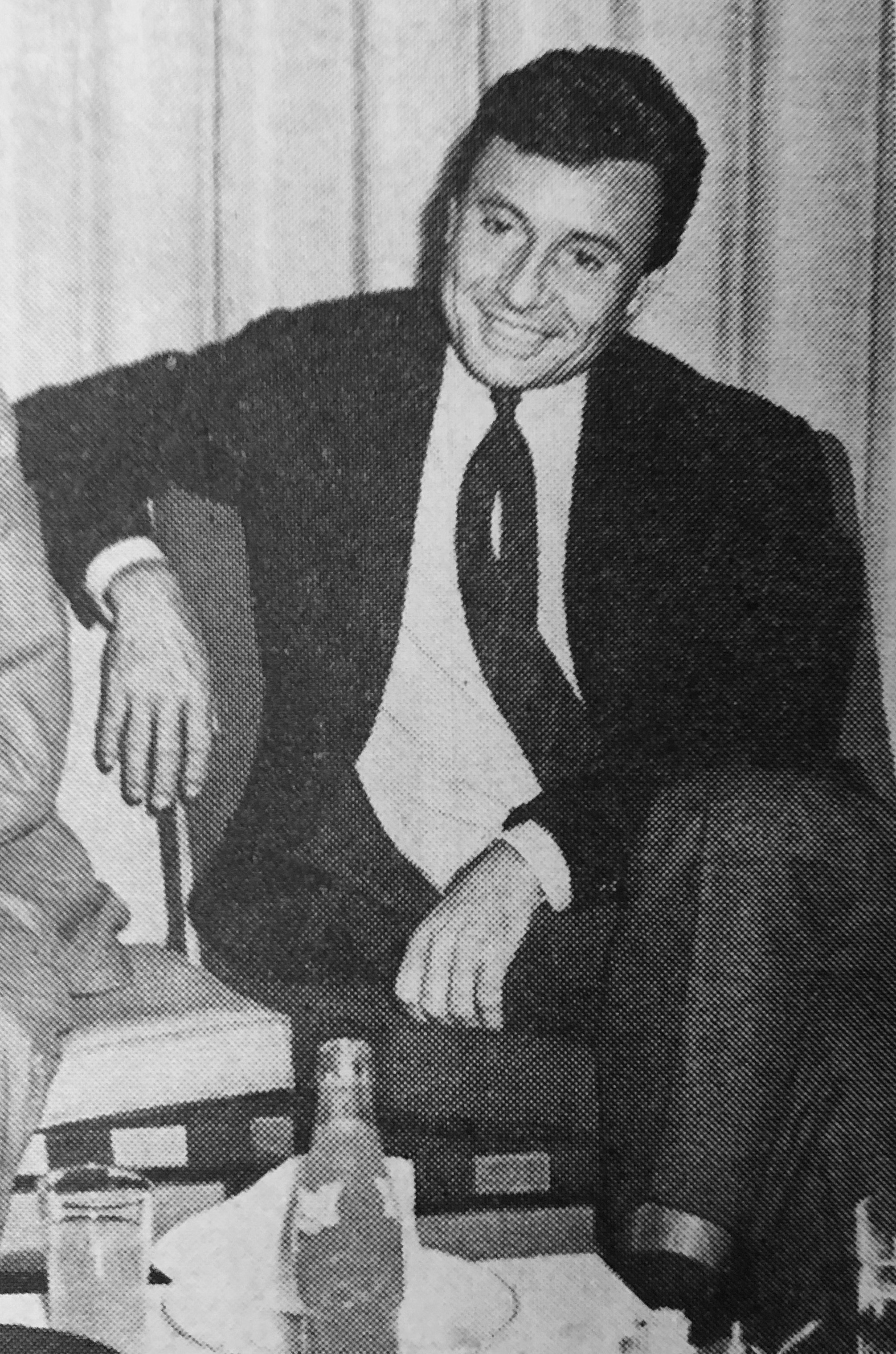1. Overview
Serge Bourguignon (born September 3, 1928) is a distinguished French film director and screenwriter known for his sensitive and impactful contributions to cinema. His career is marked by a diverse filmography spanning feature films, short films, and documentaries, often exploring profound human themes. Bourguignon gained international acclaim for his 1962 feature film, Sundays and Cybele, which earned the prestigious Academy Award for Best Foreign Language Film, cementing his place in cinematic history and highlighting his significant artistic and cultural impact on the global stage.
2. Early Life and Career Entry
Serge Bourguignon's journey into filmmaking began in the post-war era, where his early experiences laid the foundation for his future directorial achievements.
2.1. Birth and Background
Serge Bourguignon was born on September 3, 1928, in Mauregné-Montigny, a commune located in the Oise department of the French Republic. He holds French nationality.
2.2. Entry into Filmmaking
Bourguignon embarked on his filmmaking career in 1948, at the age of 20, by working as an assistant director for Jean-Pierre Melville's notable film, Les Enfants Terribles. This early experience provided him with foundational knowledge of the film industry. His directorial debut came in 1956 with the short film Sikkim, Terre secréteFrench, for which he also served as screenwriter. He subsequently collaborated with the poet Claude Roy (1915-) on three additional short film scripts, which Bourguignon directed. Roy was also known for writing the commentary for Luciano Emmer's 1954 film, Picasso.
3. Directorial Career
Serge Bourguignon's directorial career is characterized by a range of works, from his acclaimed feature film debut to a series of impactful short films and documentaries.
3.1. Feature Film Debut: Sundays and Cybele
Bourguignon made his feature film debut with Sundays and Cybele (original French title: Les Dimanches de Ville d'AvrayFrench) in 1962. The film starred Hardy Krüger, and Bourguignon himself made an appearance alongside co-screenwriter Antoine Tudal. The production featured notable collaborators, including Henri Decaë as cinematographer, Maurice Jarre for the musical score, and Bernard Evein as the production designer. Sundays and Cybele achieved significant critical success, winning the Academy Award for Best Foreign Language Film at the 35th Academy Awards in 1962. It also received the Blue Ribbon Award for Best Foreign Language Film in 1962, further solidifying its international recognition.
3.2. Other Feature Films
Following his acclaimed debut, Bourguignon directed several other feature films. In 1965, he directed and wrote The Reward, starring Max von Sydow with music by Elmer Bernstein. Two years later, in 1967, he helmed À cœur joieFrench (also known as Two Weeks in September), a film for which he also wrote the screenplay, starring Brigitte Bardot. In 1969, he co-directed and co-wrote the American film The Picasso Summer with Robert Sallin, featuring cinematography by Vilmos Zsigmond and Henri Alekan, and music by Michel Legrand. A notable international collaboration was the 1985 Japanese-French co-production 17才/SeventeenJūnana-sai/SebuntīnJapanese (also known as Fascination), which he directed and wrote, starring Shiori Sakura and featuring music by Maurice Jarre.
3.3. Short Films and Documentaries
Bourguignon's early career was significantly shaped by his work in short films. After his 1956 debut with Sikkim, Terre secréteFrench, he directed and wrote Le Montreur d'ombresFrench and EscaleFrench, both released in 1959, with Claude Roy as co-screenwriter for both. In 1960, he directed and wrote the short documentary Le SourireFrench, again with Roy as co-screenwriter and music by Georges Delerue. Later in his career, he returned to documentaries, directing Mon royaume pour un chevalFrench in 1978, a title referencing the famous line from William Shakespeare's Richard III. His later documentary work includes Impressions d'Extrême océan: l'AustralieFrench, released in 1992.
4. Filmography
Serge Bourguignon's filmography spans several decades, showcasing his versatility as a director and screenwriter across various formats.

| Year | Title | Role(s) | Notes |
|---|---|---|---|
| 1956 | Sikkim, Terre secréteFrench | Director, Screenwriter | Short film |
| 1959 | Le Montreur d'ombresFrench | Director, Screenwriter | Short film; co-screenwriter Claude Roy |
| 1959 | EscaleFrench | Director, Screenwriter | Short film; co-screenwriter Claude Roy |
| 1960 | Le SourireFrench | Director, Screenwriter | Short documentary; co-screenwriter Claude Roy, music Georges Delerue |
| 1962 | Sundays and Cybele (Les Dimanches de Ville d'AvrayFrench) | Director, Screenwriter | Feature film debut; co-screenwriter Antoine Tudal, cinematography Henri Decaë, music Maurice Jarre, production designer Bernard Evein |
| 1965 | The Reward | Director, Screenwriter | Feature film; starring Max von Sydow, music Elmer Bernstein |
| 1967 | À cœur joieFrench (Two Weeks in September) | Director, Screenwriter | Feature film; starring Brigitte Bardot |
| 1969 | The Picasso Summer | Director, Screenwriter | American feature film; co-director Robert Sallin, cinematography Vilmos Zsigmond/Henri Alekan, music Michel Legrand |
| 1978 | Mon royaume pour un chevalFrench | Director | Documentary |
| 1985 | 17才/SeventeenJūnana-sai/SebuntīnJapanese (Fascination) | Director, Screenwriter | Japanese-French co-production; starring Shiori Sakura, music Maurice Jarre |
| 1992 | Impressions d'Extrême océan: l'AustralieFrench | Director | Documentary |
5. Awards and Recognition
Serge Bourguignon received significant accolades for his work, particularly for his debut feature film. His most notable achievement was the Academy Award for Best Foreign Language Film in 1962 for Sundays and Cybele. This recognition at the 35th Academy Awards brought him international prominence. In the same year, the film also earned him the Blue Ribbon Award for Best Foreign Language Film, a prestigious Japanese film award, further underscoring the global appeal and critical success of his work.
6. International Activities
Serge Bourguignon actively engaged with the international film community, notably through his participation in film festivals and co-productions. In 1963, he played a prominent role in the 3rd French Film Festival (Japan), held in Tokyo at the Higashi Sho Hall in Chiyoda-ku from April 1 to April 10. His acclaimed film Sundays and Cybele was among the nine feature films screened, which also included works like Jean-Gabriel Albicocco's The Golden Eye of the Woman and François Truffaut's Jules and Jim.

Bourguignon himself arrived in Japan on March 28, 1963, specifically to attend the festival. He was part of a distinguished delegation of French cinema figures, which included François Truffaut, Alexandra Stewart, Alain Delon, Marie Laforêt, Albert Lamorisse, and Françoise Brion. During his visit, Bourguignon, alongside Truffaut, engaged in a notable discussion with prominent Japanese filmmakers Kon Ichikawa, Yasuzo Masumura, and Kashiko Kawakita at the Hotel New Japan. This exchange was organized for a magazine feature, highlighting the cross-cultural dialogue between French and Japanese cinematic talents. His international involvement continued with the 1985 Japanese-French co-production 17才/SeventeenJūnana-sai/SebuntīnJapanese, further illustrating his commitment to global cinematic collaboration.
7. Personal Life
Information regarding Serge Bourguignon's personal life beyond his professional career is limited in publicly available sources. He was born on September 3, 1928, in Mauregné-Montigny, Oise, France. Details about his family, private interests, or current activities are not widely documented.
8. Impact and Legacy
Serge Bourguignon's impact on cinema primarily stems from his sensitive directorial style and his ability to craft compelling narratives that resonate with audiences. His most celebrated work, Sundays and Cybele, remains a significant film, recognized for its poignant exploration of trauma and connection, which earned it an Academy Award and other international accolades. This success established him as a director capable of producing artistically profound and critically acclaimed works. His diverse filmography, including both feature films and a substantial body of short films and documentaries, demonstrates his versatility and commitment to various forms of cinematic expression. Furthermore, his active participation in international film festivals, such as the French Film Festival in Japan, and his involvement in Japanese-French co-productions, underscore his role in fostering cross-cultural exchange within the global film community. Bourguignon's contributions highlight the power of cinema to transcend borders and explore universal human experiences.
9. External Links
- [http://ftvdb.bfi.org.uk/sift/individual/14232 BFI]
- [https://www.imdb.com/name/nm0099984/ IMDb]